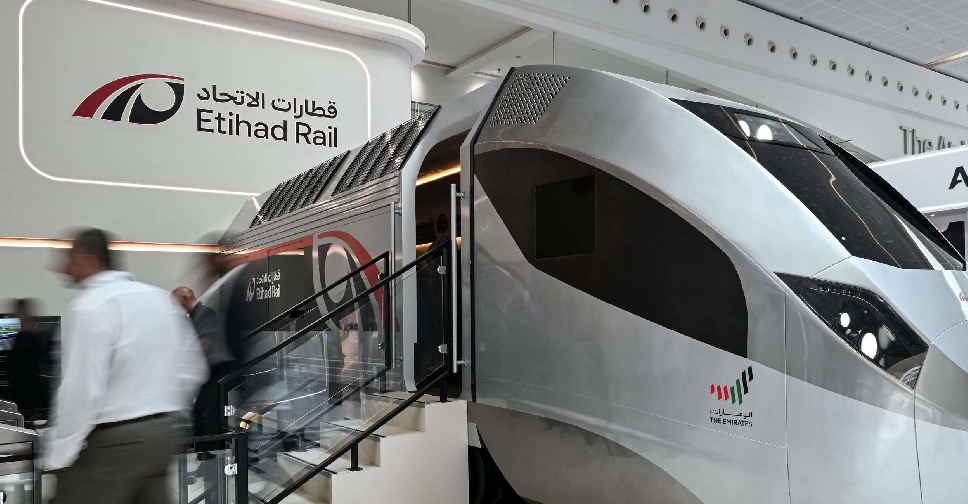UAE’s Etihad Rail Project on Course for 2026 Launch: A Leap Towards Modern Transportation
The ambitious Etihad Rail project, poised to reshape the transportation landscape across the United Arab Emirates (UAE), has reaffirmed its timeline for launching passenger services by 2026. This landmark initiative promises to not only enhance connectivity but also deliver a world-class travel experience distinguished by safety, reliability, and comfort.
In an exclusive interview with the national news agency WAM during the Global Rail 2025 exhibition held in Abu Dhabi, Azza Al Suwaidi, Deputy CEO of Etihad Rail Passenger Services, provided crucial insights into the network’s progress and objectives. The project envisions connecting 11 cities and regions, stretching from Al Sila on the western edge to Fujairah in the east. Notable stops along this route include Ruwais, Al Mirfa, Sharjah, Al Dhaid, Abu Dhabi, and Dubai, effectively covering a diverse array of communities and economic hubs.
As the nation strides towards its goal of a fully operational rail network, significant advantages for commuters and the tourism sector are anticipated. The introduction of high-speed rail will drastically reduce travel times; for instance, the journey between Abu Dhabi and Dubai, which currently spans approximately 90 minutes by car, will be condensed to just 30 minutes at speeds reaching 350 kilometers per hour. Furthermore, even longer trips, such as from Abu Dhabi to Fujairah, will now take only 105 minutes, enhancing accessibility to the eastern coast and its attractions.
Each of Etihad Rail’s modern trains is designed with capacity in mind, accommodating up to 400 passengers per journey. Al Suwaidi emphasized the importance of designing stations that promote seamless transitions for passengers. Collaborative efforts with local transport providers will ensure effective first- and last-mile connectivity, allowing travelers to enjoy a hassle-free journey from their homes to the railway stations.
The implications of the Etihad Rail project extend beyond mere transportation improvements. Economically, it is projected to contribute a staggering AED 145 billion to the UAE’s GDP over the next 50 years. This substantial impact is indicative of the UAE’s strategic focus on investment in next-generation infrastructure, reinforcing its position as a leading player in global rail development.
The Etihad Rail initiative aligns with the UAE’s broader vision of becoming a world-class hub for trade and tourism. By facilitating faster travel, the railway system is expected to stimulate domestic tourism, enabling residents and visitors alike to explore the cultural and natural diversity of the region with unparalleled ease. From the bustling markets of Dubai to the serene beaches of Fujairah, efficient transport solutions can enhance the overall visitor experience, further boosting the UAE’s tourism sector, which has traditionally been a significant contributor to the national economy.
Furthermore, this monumental infrastructure project comes at a time when sustainability is increasingly prioritized. Rail transport is recognized for its lower environmental impact compared to road travel, making it an essential part of the UAE’s efforts towards a greener future. By investing in rail networks, the country is taking meaningful strides towards reducing its carbon footprint, contributing to the global fight against climate change while promoting sustainable development.
As the Etihad Rail project transitions from planning to execution, stakeholders from various sectors, including government, business, and local communities, are eagerly watching its progress. This initiative not only reflects the UAE’s forward-thinking approach but also embodies a promise of connectivity that resonates with the nation’s rich tapestry of cultures, histories, and aspirations.
In conclusion, the Etihad Rail initiative is set to revolutionize transportation in the UAE, making it a cornerstone of national infrastructure as it enhances connectivity, stimulates economic growth, and promotes sustainable practices. The anticipated launch in 2026 marks a significant milestone in the UAE’s continuing journey towards modernization and global prominence in the arena of rail transport.
Tags:
#UAE #BusinessNews #EconomyNews #RealEstateNews

